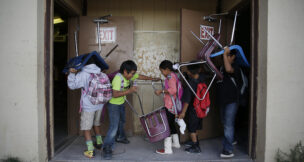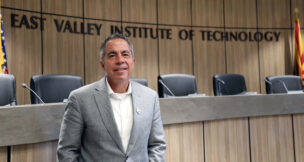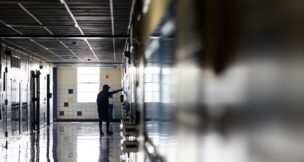Steve Owens, ADEQ director
Arizona Capitol Reports Staff//August 25, 2006//
Steve Owens, ADEQ director Steve Owens came aboard as director of the Arizona Department of Environmental Quality in January 2003, appointed by the newly elected Governor Napolitano. After graduating from...
No tags for this post.







































